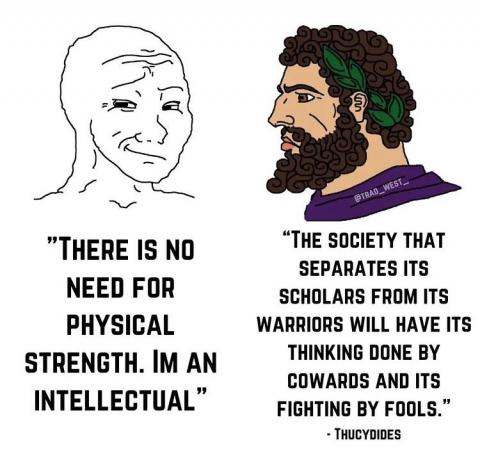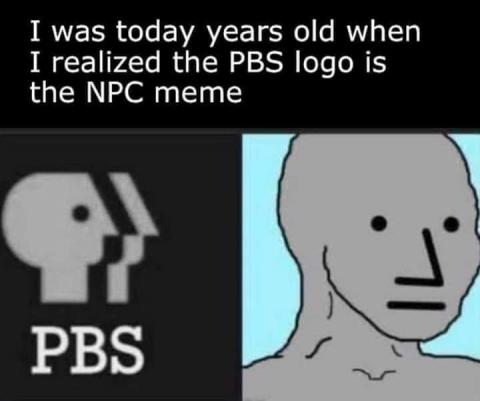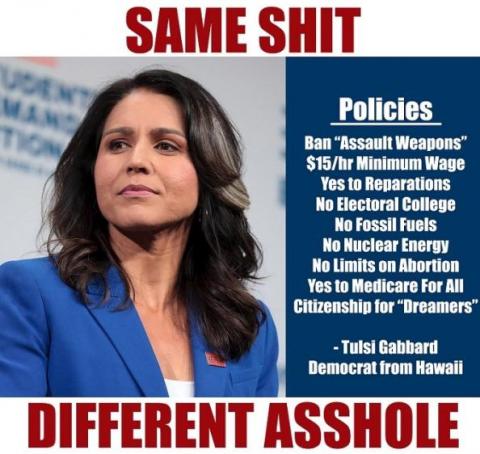Conservatives are getting hammered by the social media companies, there’s no doubt about it. Content creators, authors, independent researchers and analysts, and average Joe users are getting shadow-banned and outright deleted at a dizzying pace. It stifles thought, discussion, and makes everyone dumber because of the intellectual suppression.
Over the past decade, conservative content creators have spent time and money developing and promoting content while growing and cultivating their consumer base. Their followings have allowed them to focus on their work full-time via content monetization and sponsorships, and it’s been a gold rush of content creation that has moved consumers from TV to digital platforms like YouTube and Periscope. I'm sure it's no fun to have it taken away by no fault of your own.
Before the solution of how to slay this social media monster, I should first address the failed approach of many content creators in the wake of the mass purging. As a seasoned business owner I can’t stress enough the importance of contingency with your business model; something I've seen neglected by too many creators.
I know a lot of creators are young and their platforms grew faster than they anticipated and didn’t envision this being a business, but now it’s important to be smart and strategic. If you have a large following on Twitter and YouTube, don’t fall into the trap of looking down on services like Gab, BitChute, and others simply because they're smaller platforms. Take advantage of as many of these growing platforms as you can, as it's better to grow slower with more stability than faster on a few platforms that will likely ban you.
Right now you feel like a superstar, but you’ll get desperate once some soy-secreting trannie with ear saucers sitting in a cubical in Palo Alto decides you’re just a little too Nazi for the world and flags your channel for the final time. Don’t leave your livelihood in the hands of these deeply-envious freaks on a power trip who could never do what you do. Maintain a presence on multiple platforms.
Is your audience larger than a prominent creator like Styxhexenhammer666? He may or may not be your cup of tea but you likely know who he is, and he has a presence on Minds, Twitter, BitChute, Gab, YouTube, Steemit, D-Tube, dailymotion, and others I’m too lazy to find. He’s smart and knows how to survive and grow in the digital space that’s hostile to free thinkers.
If these platforms are good enough for him, they’re good enough for you. If YouTube bans him, or he gets bounced by Twitter, it will sting, but he’s still in the game. He’ll retain his following, continue to promote sponsors and push merchandise, all possible because he’ll be able to continue distributing content. He would also recover lost followers as the other platforms continue to grow. Keeping a presence on multiple platforms is critical for conservative creators.
Final and most important point: you must have a website; this is your home base that nobody can ever take from you. Even in a catastrophic scenario where you’re purged from all platforms, you’ll still have a platform to engage your users and publish content. Styxhexenhammer666 has two sites.
Staying alive and developing a contingency for your business is one part of the battle. The other part is to knock these monsters back down to reality. What’s the solution?
Of the social media platforms, Google, YouTube, Facebook, and Twitter are the major problems. They continue to blatantly purge conservative users for pro-American thought and content, and as 2020 approaches there’s no signs of it slowing down.
Twitter, however, is not like the others. It’s truly a private company (listed publicly on the NYSE) in the sense that it’s not a government company. Twitter grew to the monster it is because it’s an amazing product that caught fire at the right time. They were created and launched by coders and venture capitalists; not government.
Like the baker who refuses to bake a cake with a dildo on top for a gay wedding, Twitter can refuse service to whomever it wishes, and I fully support that. Sure, as they grew larger, they’ve been taken over by lunatics like Prince Al-Waleed, but they’re not controlled by government.
As a pro-Constitution free market capitalist business owner, I'm automatically on the side of the business, which is on the side of freedom and the First Amendment. The snarky “muh private company” comment by many “conservatives” is unfortunate as it shows a lack of respect for the freedom of business and private property rights. I'd expect this from Bernie supporters.
Still, Twitter can be rightfully knocked down to size (even as they decline). Twitter, and the others, enjoy protection under Section 230 of the Communications Decency Act:
Section 230 says that "No provider or user of an interactive computer service shall be treated as the publisher or speaker of any information provided by another information content provider" (47 U.S.C. § 230). In other words, online intermediaries that host or republish speech are protected against a range of laws that might otherwise be used to hold them legally responsible for what others say and do. The protected intermediaries include not only regular Internet Service Providers (ISPs), but also a range of "interactive computer service providers," including basically any online service that publishes third-party content. Though there are important exceptions for certain criminal and intellectual property-based claims, CDA 230 creates a broad protection that has allowed innovation and free speech online to flourish.
This legal and policy framework has allowed for YouTube and Vimeo users to upload their own videos, Amazon and Yelp to offer countless user reviews, craigslist to host classified ads, and Facebook and Twitter to offer social networking to hundreds of millions of Internet users. Given the sheer size of user-generated websites (for example, Facebook alone has more than 1 billion users, and YouTube users upload 100 hours of video every minute), it would be infeasible for online intermediaries to prevent objectionable content from cropping up on their site. Rather than face potential liability for their users' actions, most would likely not host any user content at all or would need to protect themselves by being actively engaged in censoring what we say, what we see, and what we do online. In short, CDA 230 is perhaps the most influential law to protect the kind of innovation that has allowed the Internet to thrive since 1996.
Removing Section 230 protection from Twitter and others would immediately drop these monsters to their knees, as the 230 protection wasn't intended to help facilitate censorship of political ideas. Tagging them as publishers, however, is not the game-changing solution for the others.
Facebook, Google, and YouTube (owned by Google) are government companies. They are the spawn of taxpayer dollars, delivered through the tit of government and grown with unlimited budgets, black technology, and the CIA-controlled media. It would be impossible for anyone to not become the biggest social media companies in the world with this backing.
The solution to reigning in these monsters is commonly parroted as "breaking them up". This is not only ridiculous, but it would have zero effect on anything. How are you going to break up a company like Facebook? Make sure every service like Instagram is its own corporation with its own separate offices? Oh, how terrified the execs must be. How are you breaking up a service that operates by users' browsers making requests to servers all over the country?
These are government-controlled companies whose technology was created and provided by intelligence agencies like the CIA. Therefore, since the taxpayers paid for these technologies, they should be opened up to the public.
What does this mean? It means the core technologies that make these platforms impossible to compete against should be open-sourced for anyone to use. For example, I use DuckDuckGo instead of Google. I like DDG, and they've constantly improved over the years, but there's still a gap between Google's technology and DDG's. How great would it be if DDG could incorporate their non-tracking philosophy with the artificial intelligence and search algorithms used by Google?
How about Facebook's facial recognition technology? Possible applications are flipping through my brain as I type this. Open up these technologies provided by the government and paid for by taxpayers and allow innovators to run wild. Google and Facebook would still be around, but they'd be forced to do something they didn't have to do before: compete.
A way to conceptualize this is to think about the technology as an automobile engine that can do things other engines can't. Instead of one car manufacturer who solely has access to this special engine, the design and plans would be made available to all auto companies. The original car company would still exist but it would have to share the engine technology with other smart, young, hungry, and well funded up-and-coming companies licking their chops to build their own special cars with their own ideas and innovation that utilize this engine technology.
Another technology to open would be Google's mapping and street view technology. Or, their ability to convert audio from video into indexable text that can now be fit into their open-sourced search algorithms. Toss in other technologies like facial recognition and other tech we don't know about that they have stashed away and the internet would undergo a new innovation boom.
This would be the most proper and ethical course of action. These companies didn't develop this technology. They may have helped work on the edges, but the core tech doesn't belong to them; it belongs to us, the people. We paid for it, and web innovation should not be in the hands of beta-males who sit with their knees pressed together.






